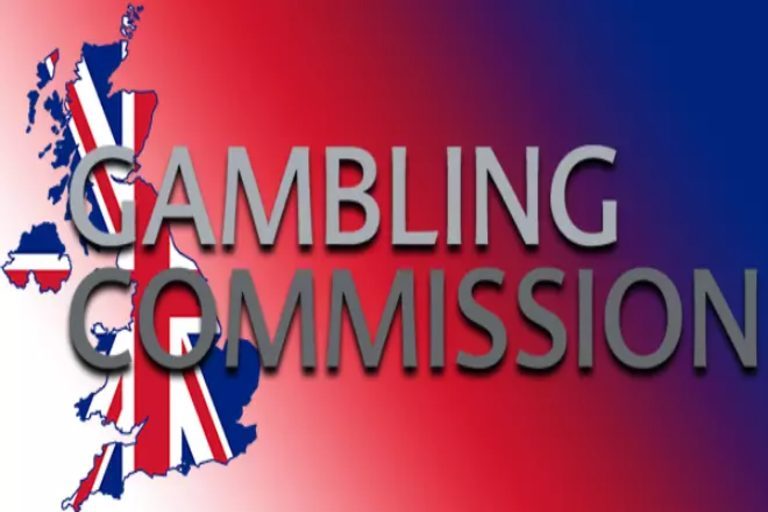UKGC Probes Election Betting

In a politically charged atmosphere leading up to the #UKGeneralElection, the spotlight has unexpectedly turned to the realm of gambling. The @UKGamblingCommission (#UKGC), tasked with ensuring fairness and transparency in the gambling industry, has launched a sweeping investigation into allegations of #betting on political outcomes. This unprecedented probe has cast a shadow over several prominent figures within the #ConservativeParty, sparking debates about #ethics, legality, and the integrity of the #ElectoralProcess.
Background and Initial Allegations
The controversy erupted when Craig Williams, a parliamentary hopeful, was identified as part of the UKGC’s investigation. Williams, a candidate with ties to the Conservative Party, allegedly placed bets related to the upcoming general election. His involvement marked the beginning of a broader inquiry that would ensnare more figures within political circles.
Following Williams, Laura Saunders emerged as another key figure implicated in the probe. Saunders, standing for election in the Bristol North West constituency, and her husband Tony Lee, the Conservatives’ director of campaigning, were both named in connection with betting activities surrounding the election. Their involvement underscored the potential reach of the UKGC’s investigation, highlighting how gambling practices can intersect with political campaigns.
Nick Mason’s Involvement and the Expanded Scope
Nick Mason, the Tories’ chief data officer, was later revealed by The Sunday Times as another individual under scrutiny. Allegations against Mason suggested that he placed multiple bets, each reportedly under £100 but collectively amounting to significant potential winnings. The revelation of Mason’s involvement deepened the controversy, raising questions about the use of confidential information and potential breaches of gambling regulations.
In addition to publicly named individuals, the UKGC’s investigation has extended to include undisclosed participants. Among them is a Metropolitan police officer assigned to protect Prime Minister Rishi Sunak, whose identity remains confidential. The inclusion of law enforcement personnel further underscores the breadth and sensitivity of the probe, implicating individuals with access to privileged information.
Regulatory Framework and Legal Implications
Central to the UKGC’s investigation are regulations prohibiting the exploitation of confidential information for gambling purposes. Such activities are not only unethical but can also constitute criminal offenses under existing laws. The commission’s mandate includes safeguarding against unfair advantages in gambling, particularly in contexts where political information could be misused for personal gain.
In response to the unfolding situation, both Nick Mason and Tony Lee have taken leaves of absence from their respective roles. Despite denying any wrongdoing, their decisions reflect the seriousness of the allegations and the potential consequences of the UKGC’s findings. Prime Minister Rishi Sunak, reacting to the controversy, pledged decisive action against any members of his party found to have violated gambling laws, underscoring the political stakes involved.
Industry Response and Compliance Measures
The UKGC’s directive to betting operators to disclose all bets exceeding £20 related to the election date has prompted industry-wide compliance efforts. This measure aims to enhance transparency and accountability among operators, ensuring that all betting activities are conducted in accordance with established regulations. By requiring detailed disclosures, the UKGC seeks to mitigate risks associated with illicit gambling practices and uphold the integrity of the electoral process.
Industry stakeholders, including major betting operators, have responded cautiously to the regulatory scrutiny. Compliance with the UKGC’s directives is not only a legal obligation but also a strategic imperative to maintain public trust and regulatory compliance. The unfolding investigation serves as a reminder of the stringent regulatory environment governing gambling activities, particularly in sensitive political contexts.
Analysis and Public Perception
The intersection of political engagement and gambling practices has ignited public debate and scrutiny. Critics argue that betting on political outcomes undermines the democratic process by commodifying elections and influencing public perception. The involvement of political figures in gambling activities raises ethical concerns about transparency, fairness, and the accountability of elected officials.
Conversely, proponents of regulated gambling emphasize the importance of robust regulatory frameworks to prevent abuse and corruption. By enforcing strict guidelines and transparency measures, regulators aim to safeguard against potential manipulation of political processes through illicit gambling activities. The UKGC’s proactive stance underscores its commitment to maintaining public trust in the integrity of both gambling and electoral systems.
Future Implications and Legal Precedents
As the UKGC’s investigation continues to unfold, it is poised to set significant legal precedents for the regulation of political betting. The outcome of this probe could shape future legislative measures aimed at enhancing transparency and accountability in gambling practices. By holding individuals and operators accountable for their actions, regulators seek to establish clear boundaries and deter potential abuses of power in electoral contexts.
The implications extend beyond immediate legal ramifications to broader societal impacts on public trust and political participation. Transparency in gambling practices is crucial not only for regulatory compliance but also for preserving the legitimacy of democratic institutions. The scrutiny surrounding election betting serves as a catalyst for ongoing discussions about ethics, governance, and the evolving role of regulation in safeguarding public interests.
Conclusion
The UK Gambling Commission’s investigation into election betting represents a pivotal moment in the intersection of politics and gambling regulation. As the probe unfolds, stakeholders across sectors are closely monitoring developments that could reshape the landscape of political engagement and regulatory oversight in the UK. By addressing allegations of misconduct and reinforcing regulatory standards, the UKGC aims to uphold the integrity of both electoral processes and the gambling industry.
In navigating these complex issues, regulators, industry stakeholders, and the public must balance competing interests while upholding principles of fairness, transparency, and accountability. The outcome of the UKGC’s investigation will likely influence future regulatory frameworks and legislative measures, underscoring the ongoing evolution of governance in an increasingly interconnected world.
FAQ:
What prompted the UK Gambling Commission to investigate election betting?
The UK Gambling Commission (UKGC) launched an investigation following allegations of betting activities involving prominent figures within the Conservative Party ahead of the upcoming general election. The probe aims to ensure transparency and integrity in gambling practices, particularly concerning sensitive political events.
Who are the key individuals involved in the UKGC’s probe?
Several key individuals have been implicated, including parliamentary candidate Craig Williams, Laura Saunders standing for election in Bristol North West, Tony Lee, the Conservatives’ director of campaigning, and Nick Mason, the Tories’ chief data officer. Additionally, an unnamed Metropolitan police officer linked to Prime Minister Rishi Sunak’s security detail is also under scrutiny.
What are the potential legal consequences for those implicated in election betting?
Engaging in election betting using confidential information may constitute a criminal offense under UKGC regulations. Penalties can include fines, sanctions, and legal prosecution, depending on the severity and intent of the violation.
How are betting operators complying with the UKGC’s directives regarding election bets?
Betting operators are required to disclose all bets valued at £20 or more on the date of the election, as mandated by the UKGC. This measure aims to enhance transparency and accountability in gambling activities related to political events.
What ethical concerns arise from political figures engaging in gambling activities?
Political figures engaging in gambling activities raise concerns about potential conflicts of interest, fairness in electoral processes, and the responsible use of privileged information. Such activities can undermine public trust in democratic institutions and raise questions about ethical standards in governance.
How is the UKGC ensuring transparency in political betting practices?
The UKGC ensures transparency by imposing strict regulations on gambling operators, requiring detailed disclosures of betting activities, and investigating allegations of misconduct thoroughly. These measures aim to uphold integrity and prevent abuse of gambling platforms for personal gain.
What measures has Prime Minister Rishi Sunak announced regarding gambling within his party?
Prime Minister Rishi Sunak has pledged to take decisive action against any members of his party found to have breached gambling laws. This includes removing individuals from positions of authority and implementing stricter internal controls to prevent future violations.
How might the UKGC’s investigation impact future regulations on political gambling?
The outcome of the UKGC’s investigation could influence future regulatory frameworks governing political gambling. It may lead to tighter controls, enhanced oversight, and stricter penalties for violations, aimed at preserving the integrity of electoral processes and public trust in gambling practices.
What arguments support and oppose the regulation of political betting?
Supporters argue that regulated political betting can provide transparency, generate revenue, and engage voters. Opponents raise concerns about ethical implications, potential manipulation of election outcomes, and the commodification of political events.
How does the UKGC define “confidential information” in the context of gambling laws?
Confidential information, as defined by the UKGC, includes non-public knowledge that could provide an unfair advantage in gambling activities. This may encompass insider information related to political campaigns, electoral outcomes, or other sensitive data that could influence betting decisions.
Recommended Posts

SEO Strategies for iGaming Success
July 1, 2024

Hub88 & Popiplay Enhance iGaming Content
July 1, 2024

Werner Becher Appointed CEO of Kambi Group
July 1, 2024




